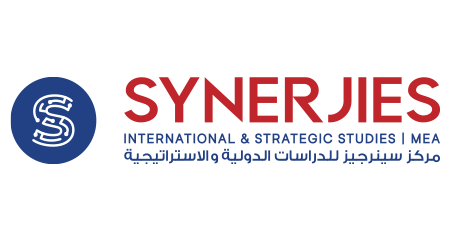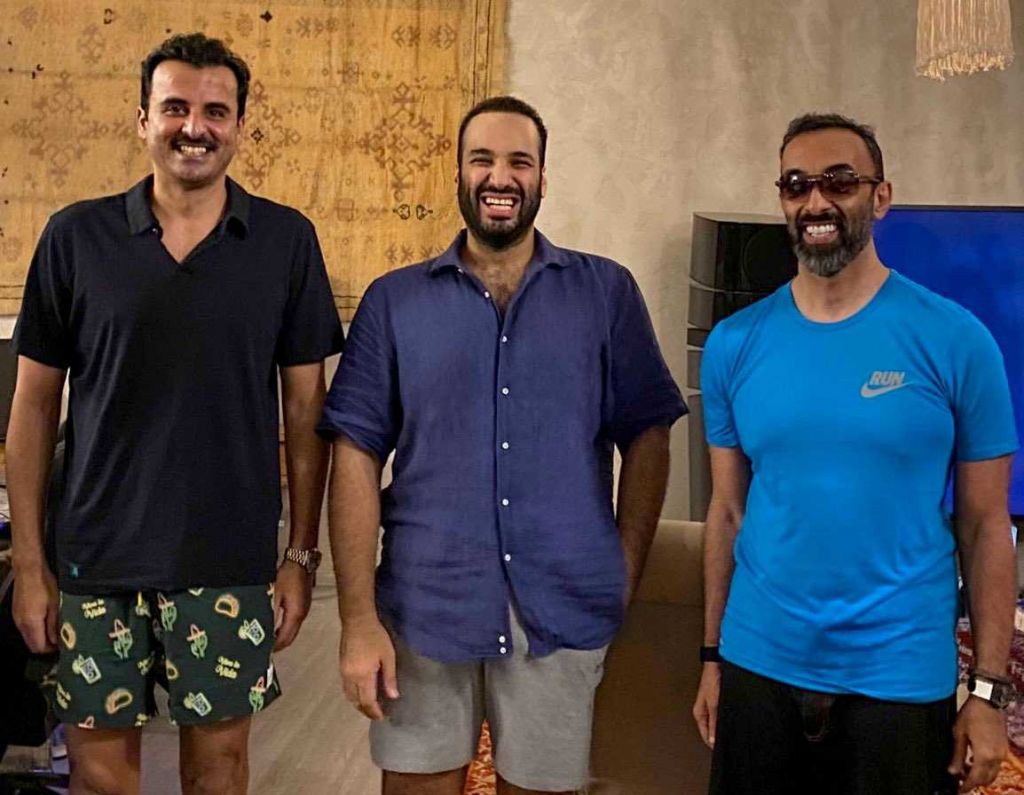Despite fears and distrust experienced in one form or the other on both the Saudi and Qatari sides over more than three years, currently there is an emerging strategic rapprochement taking form between them. Before delving more into the rapprochement, the strategic calculations behind this strategic rapprochement and the new dynamics among the key GCC members: Qatar and UAE and their relationship with Saudi, it’s worthwhile to take a step back and look at the triggers of the disagreement and those of the eventual agreement.
Brief Background on the Dispute
Several factors were behind the dispute:
- Qatar’s lack of enmity or maybe support for Iran, with which it shares the largest natural gas field in the world
- Qatar’s support for the Muslim Brotherhood, nemesis of the Saudis and enemies of the UAE
- Qatar’s dissemination of anti-Saudi propaganda through its TV channel, Aljazeera
These disagreement triggers were well present even before 2017, however, with the advent of Crown Prince Muhammad bin Salman (MBS), and the revealed Qatari role in aiding the Houthi rebels in Yemen, the real escalation took place.
The Ending of the Dispute Between Qatar and Saudi
Mainly Due to the Below Factors:
- The American pressure to unify its Gulf front in the face of an intensified fear of Iran, especially with the takeover of Iran’s hard-liners in both the legislative and executive branches. In fact, this American interest was evident in the extensive help of the American negotiating team led by Jared Kushner to reach the agreement.
- Saudi failed to fend off the pro-Iranian militant groups in Yemen and Iraq, so it would very much value the Qatari help in mediating in its proxy wars with Iran. This approach is especially called for in Saudi within the context of its strained economic position because of the pandemic. Moreover, it is part of Riyadh’s recent policy of regional de-escalation, as the US continues to downplay it on its foreign policy agenda. The most recent manifestation of that downplaying is the withdrawal of the defensive Patriot missile batteries from Saudi.
- The Qatari needs to return to the pre-boycott ‘not-so-hostile’ environment after a three-year boycott that left it landlocked and costed it significantly. Also, after Biden assumed power in the US, the American checks on Turkey’s power in the region became so evident and turkey was Qatar’s main support during the boycott time. Thus, Doha wanted to pre-empt a situation where Turkey is no longer a reliable regional ally.
The Formal Agreement to End the Disagreement
2021 began with big news for the Gulf and the Middle East. After three years of a diplomatic and economic boycott of Qatar accompanied by a land blockade, Saudi and Qatar signed an agreement to end the dispute. This milestone was reached after over three years of messages that have been passed between the Saudi and Qatari leaderships, mainly through the governments in Kuwait and Oman. These efforts culminated in last January at the “solidarity and stability” summit in Saudi’s al-Ula on the Red Sea.
Post-Rapprochement: The GCC Re-emergence
Now since the Gulf Cooperation Council (GCC) is reunified, it’s time to see how things are changing on the inside. Because of the changed power dividends among the former disputants, new dynamics appear to be at work in relations among members of the (GCC) and their prospective roles.
- Qatar
Despite the current rapprochement, understandably Qatar will always be conscious of its vulnerable position, since, arguably, the Gulf crisis of 2017 was the most serious threat to Qatar’s security and stability since its birth in the 70’s. However, there are many plus sides to the Qatari Situation, as it returns to the GCC. It became more than ever key to the US, as it plays the role of a busy interlocutor between the US and Iran, on the one hand, as well as the US and Taliban as they consolidate power in Afghanistan, on the other hand. Of course, these roles will give Qatar an edge over other key Gulf states: mainly Saudi and UAE. As for its relationship with Saudi, it is more than evident that MBS is well aware on how to use Qatar to engage Iran in dialogue. In fact, we are looking at a possibility of not only rapprochement, but rather an alignment. The establishment of the Saudi-Qatari Coordination Council, headed by Sheikh Tamim and MBS, is a very telling development of the long agenda of potential alignment between both sides. Undoubtedly, this move towards Qatar was, at least partially, motivated by the growing fissures between Saudi and the UAE since the Emirati withdrawal from the war in Yemen.
- UAE
While UAE decided to abide by the GCC directives, it doesn’t look like Abu Dhabi Crown Prince and de facto UAE ruler Mohammed bin Zayed Al Nahyan, MBZ, is enthusiastic about the rapprochement. This not very welcoming attitude was very evident in the fact that it was the UAE National Security Advisor, Sheikh Tahnoun bin Zayed Al Nahyan, who met with Qatar’s emir not MBZ. In fact, this attitude is understandable as the UAE doesn’t need the Qatari role as an interlocutor with Iran as Saudi does, since UAE maintained a low-key open relationship with Iran, and it had withdrawn its forces from Yemen in 2019. Also, there is still a major issue of contention between UAE and Qatar, that is the Qatari support for the Muslim Brotherhood, MB. Unlike Saudi, which doesn’t quite see the MB as an existential threat, UAE does. Suffice it to look at the main reason that caused the fissures between the once very close allies, Saudi and UAE, to know how the MB problematic is so central to the Emirati agenda. The fissures started when even before the withdrawal from Yemen, UAE aided the Southern Transitional Council that challenges the authority of the internationally recognized government of President Abdrabbuh Mansour Hadi supported by Saudi. This Emirati backing was a backlash against the level of involvement and dominance of Islah party, that’s an MB offshoot.
However, it is important to note that in the near future, Abu Dhabi will start contemplating moving toward normalizing its relations with Doha. This may be due to its continuous and strong inclination to keep all options open.
Conclusion: The Stock Market of Political Dividends and the GCC
Qatar is trying to capitalize on its newly earned dividends and how things will settle in the long term will be primarily be decided based on how it will manage its relationships and play its cards. As for the UAE, there is no question that it has decided to pursue its very own agenda regardless of any collective calculus. However, the GCC will always remain for it an institutional framework for some sort of regional alignment but imposing no constraints on it. It is no secret that UAE foreign policy decisions, more than ever, focus on economic instead of political dividends.
As for Saudi, it is de-escalating its contentions and conflicts in the region and forming new alignments with actors that it sees their dividends key to its agenda. Additionally, in the long term it will mainly utilize the Saudi-Qatari Coordination Council, rather than the GCC, to move forward with its key agenda items in the Gulf particularly and in the region more generally after the recent relative weakening of its alliance with UAE.


